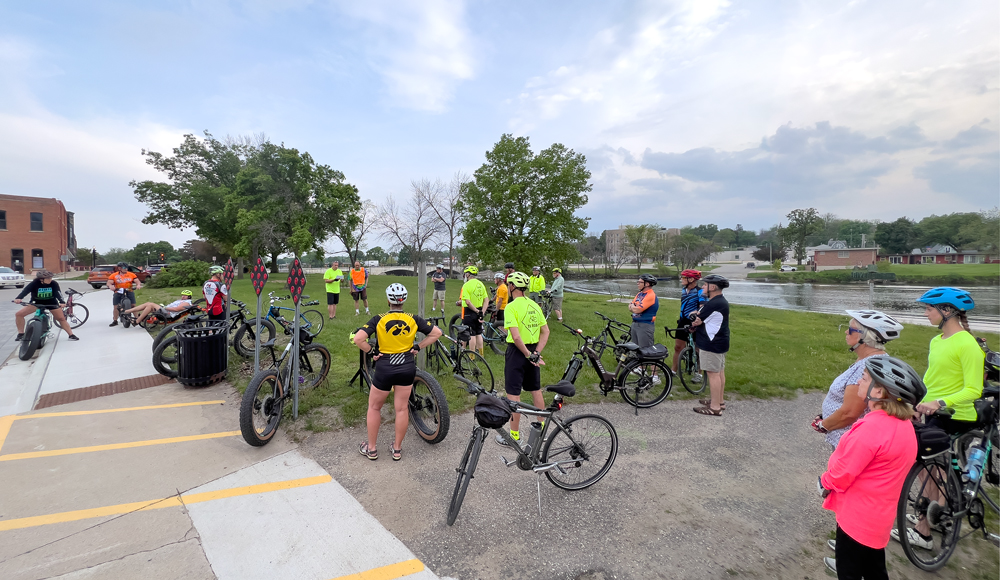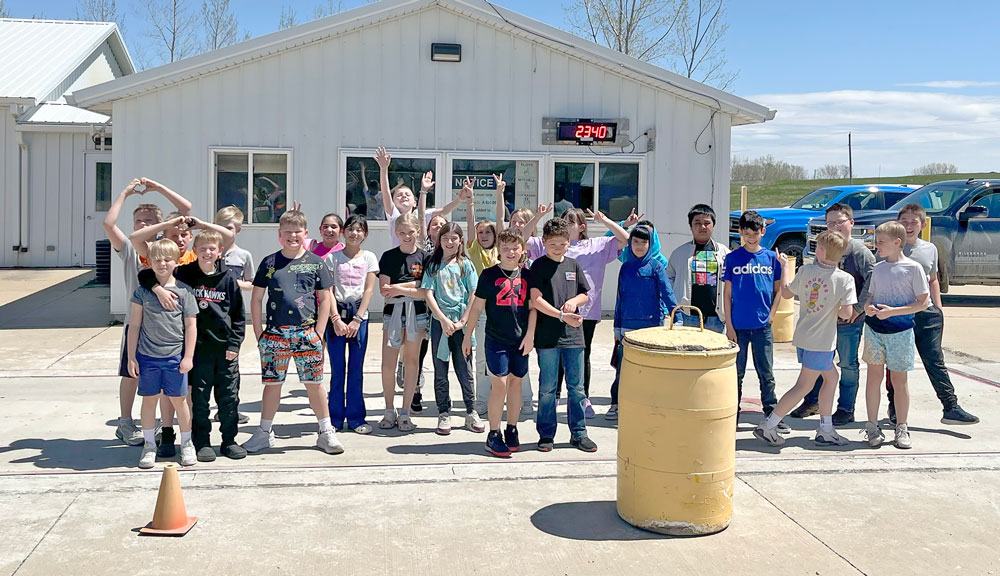Legislative session into overtime over eminent domain, budget

By Robin Opsahl, Iowa Capital Dispatch
The use of eminent domain for carbon pipeline projects remains one of the roadblocks to ending this session of the Iowa Legislature.
Iowa lawmakers stopped receiving per-diem payments after Friday, May 2, — a deadline meant to spur legislators to end the session. But even though Republicans control the House, Senate and governor’s office, there are still disagreements between the two chambers on funding and policy proposals.
One of the major pieces of policy that remains up for discussion is the use of eminent domain in carbon sequestration pipeline projects.
Last week, a group of 12 GOP senators including area Sens. Sandy Salmon (R-Janesville) and Doug Campbell (R-Mason City) sent a letter to Senate leadership demanding debate on House File 639, legislation passed by the House and approved through the Senate committee process.
“We believe addressing eminent domain is more important than the budget or any other priority for the 2025 session and pledge to vote against any remaining budget bill until a floor vote occurs on the clean HF639 bill,” the letter states.
Salmon represents all of Floyd County except for the Rock Grove and Rockford townships, plus all of Chickasaw, Butler and Bremer counties. Campbell represents the Rock Grove and Rockford townships in Floyd County, as well as all of Cerro Gordo, Mitchell and Worth counties.
Salmon said in an interview with the Iowa Capital Dispatch the letter was sent as public pressure has been building for Iowa lawmakers to take action on this issue.
“By and large, the public has become quite aware of it now, and really don’t see the need for eminent domain to be used for this project,” Salmon said. “It’s a private project. It’s for private use. It’s not a public use project, and our Constitution requires it be a public use in order to have eminent domain used.”
The fact that South Dakota now has a law banning the use of eminent domain for carbon dioxide pipeline has also helped “build the momentum to put the same type of prohibitions on CO2 pipelines here in Iowa,” Salmon said.
Bills need at least 26 votes to pass the 50-member Senate. If the 12 Republican senators who signed the letter and all 16 Democrats vote against a bill, the measure will fail.
In addition to Salmon and Campbell, the other 10 lawmakers who signed the letter were Sens. Kevin Alons, Rocky De Witt, Lynn Evans, Dennis Guth, Mark Lofgren, Mike Pike, Dave Rowley, Dave Sires, Jeff Taylor and Cherielynn Westrich.
Eminent domain bills have come up in sessions the past couple of years, but have never made it to a vote on the Senate floor. They have focused largely on the proposed Summit Carbon Solutions pipeline, which would span more than 1,000 miles in Iowa – including a main line and two arterial lines in Floyd County – transporting liquid carbon dioxide from ethanol plants to what Summit says would be permanent deep underground storage sites in North Dakota.
The bill brought up in the letter is a measure the House advanced in March to prohibit carbon sequestration pipelines from using eminent domain in Iowa. Floor debate at the time included concerns over the Senate’s avoidance of eminent domain bills over the past several years.
The proposal combines a number of bills previously proposed in the House aimed at hindering the Summit Carbon Solutions pipeline. The bill would increase insurance requirements for pipeline operators, limit permits to one 25-year term and adjust the definition of a common carrier that would be eligible for eminent domain.
The bill also requires a member of the Iowa Utilities Commission be present at all hearings, limits the commission’s ability to impose sanctions on Iowans who intervene in the proceedings and allows affected Iowans, including lawmakers, to intervene.
Sen. Mike Bousselot, R-Ankeny, proposed a major amendment to the bill that would remove the eminent domain ban and broaden the scope of the bill to include all eminent domain projects in the state — such as roads or utility lines — not just liquid hazardous pipelines. The amendment, which can only be officially adopted on the floor, would allow projects to find voluntary easements outside of the original project corridor, which Bousselot said during committee hearings would allow projects to “avoid” eminent domain.
His amendment would also require an IUC decision on a permit within one year and strikes almost all of the House language, keeping only the IUC attendance requirements and portions of the insurance requirements.
Sen. Kevin Alons, R-Salix, proposed a strikethrough amendment to Bousselot’s proposition. Another amendment, proposed by a group of largely the same GOP lawmakers who signed onto the letter, would limit the definition of public use projects in Iowa Code related to eminent domain for the construction of “hazardous liquid pipelines for the transportation or transmission of liquefied carbon dioxide.”
Sabrina Ahmed Zenor, a spokesperson for Summit, said the company “has invested four years and nearly $175 million on voluntary agreements in Iowa, signing agreements with more than 1,300 landowners and securing 75% of the Phase One route.”
“We are committed to building this project, committed to Iowa, and remain focused on working with legislators—including those with concerns,” Zenor said in a statement.
Senate Majority Leader Jack Whitver said in a statement that “a number of Republican Senators are working on policy surrounding eminent domain and pipeline issues and I am optimistic we will find a legislative solution.”
— Cami Koons contributed to this report.
— Iowa Capital Dispatch is part of States Newsroom, a nonprofit news network supported by grants and a coalition of donors as a 501c(3) public charity. Iowa Capital Dispatch maintains editorial independence. Contact Editor Kathie Obradovich for questions: info@iowacapitaldispatch.com.









Social Share